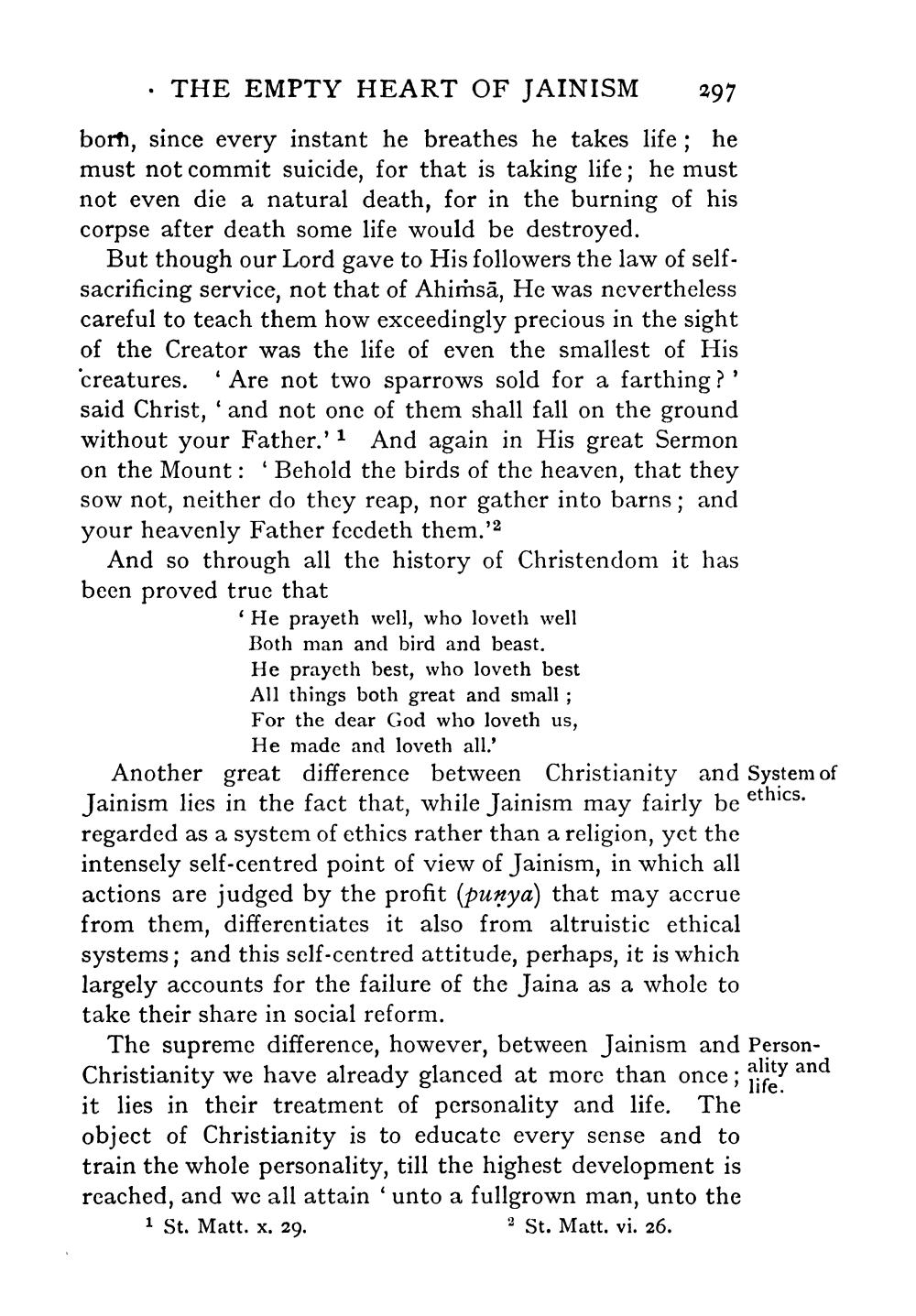________________
· THE EMPTY HEART OF JAINISM 297 born, since every instant he breathes he takes life; he must not commit suicide, for that is taking life; he must not even die a natural death, for in the burning of his corpse after death some life would be destroyed.
But though our Lord gave to His followers the law of selfsacrificing service, not that of Ahimsā, He was nevertheless careful to teach them how exceedingly precious in the sight of the Creator was the life of even the smallest of His creatures. Are not two sparrows sold for a farthing?' said Christ, and not one of them shall fall on the ground without your Father.'1 And again in His great Sermon on the Mount: 'Behold the birds of the heaven, that they sow not, neither do they reap, nor gather into barns; and your heavenly Father fecdeth them.'2
And so through all the history of Christendom it has been proved true that
He prayeth well, who loveth well Both man and bird and beast. He prayeth best, who loveth best All things both great and small; For the dear God who loveth us,
He made and loveth all.' Another great difference between Christianity and System of Jainism lies in the fact that, while Jainism may fairly be ethics. regarded as a system of ethics rather than a religion, yet the intensely self-centred point of view of Jainism, in which all actions are judged by the profit (punya) that may accrue from them, differentiates it also from altruistic ethical systems; and this self-centred attitude, perhaps, it is which largely accounts for the failure of the Jaina as a whole to take their share in social reform.
The supreme difference, however, between Jainism and PersonChristianity we have already glanced at more than once; ality and it lies in their treatment of personality and life. The object of Christianity is to educate every sense and to train the whole personality, till the highest development is reached, and we all attain ‘unto a fullgrown man, unto the 1 St. Matt. x, 29.
? St. Matt. vi. 26.




